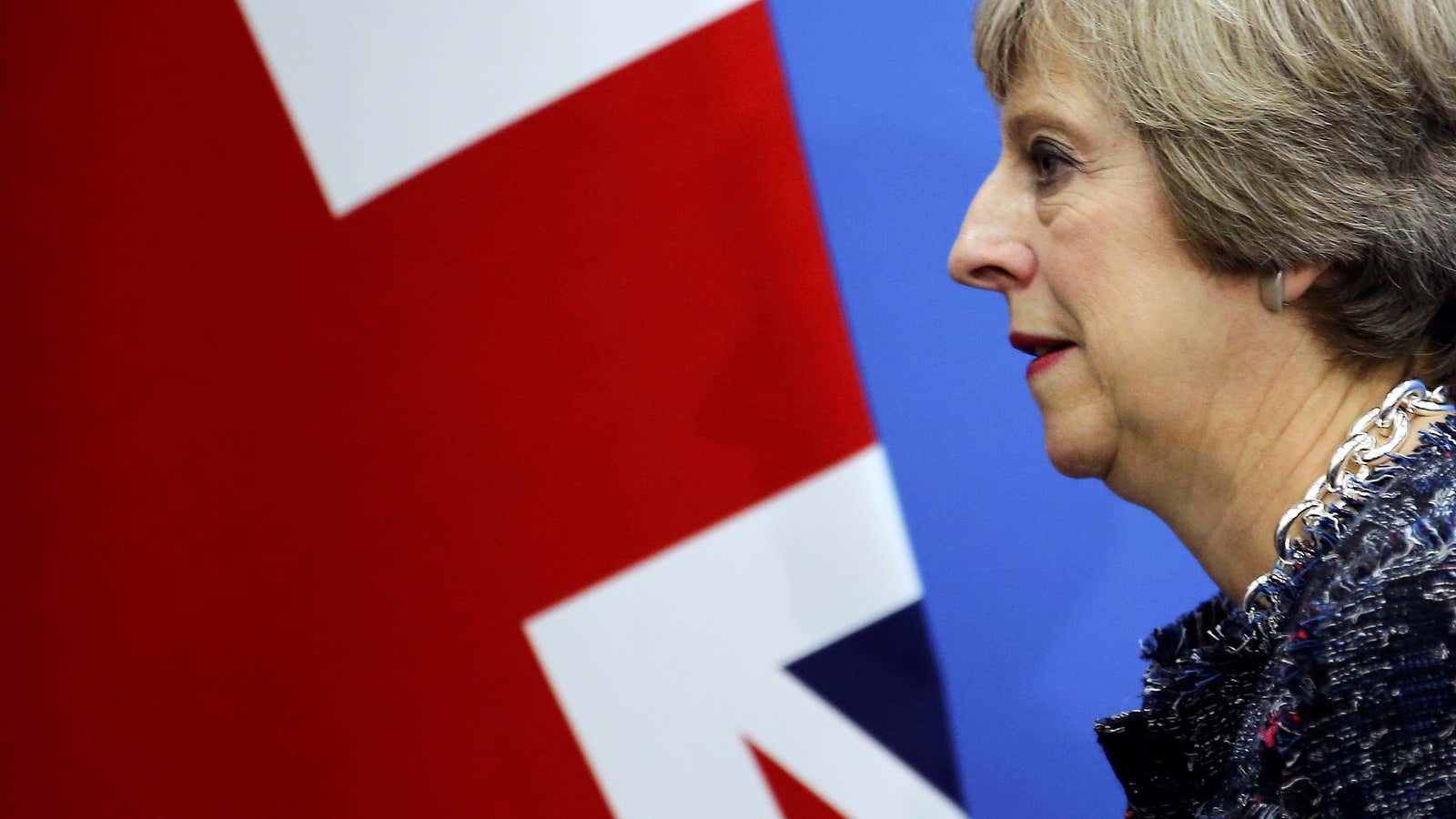Discontent over immigration was one of the key reasons a majority of Britons voted to leave the EU in June. The ”Leave” campaign promised to stem an ”out-of-control” tide by extending the points-based system, which currently applies to non-EU citizens, to immigrants from the EU as well. This system, which gives each would-be migrant a score based on various attributes and skills, would let in only those considered valuable to the economy.
Now, that very promise looks like being broken. Speaking today (Sept. 5) at the G20 summit in Hangzhou, China, prime minister Theresa May rejected the points-based model, saying she wanted a system “where the government is able to decide who comes into the country,” rather than one that determined entry by meeting a set of criteria.
May’s concern, apparently, is that a points-based system wouldn’t exclude enough people, because anyone who gets enough points automatically gets in. A spokesperson for her said:
When Labour introduced a points-based immigration system, the numbers went straight up. In Australia, they have a points-based system and they have higher immigration per capita than Britain.
Net migration in the 12 months ending in March 2016 was 327,000 people—down very slightly on the previous year. Since assuming office this summer May has reaffirmed her commitment to cut it “to the tens of thousands.”
None of that has impressed Nigel Farage, one of the architects of the Brexit vote and former leader of the UK Independence Party, who accused May of ”serious backsliding,” and said, “The people were clear in wanting a points-based immigration system which is why so many went out and voted to leave the European Union.”
Farage may be worried that May’s insistence on the government being “able to decide” is a way to give herself wiggle room in upcoming negotiations with the EU. EU leaders have said Britain won’t be able to have full access to the single market after Brexit without also allowing for full freedom of movement. Committing to a points-based system would make it harder for Britain to negotiate a compromise. As for May, she is keeping her cards close to her chest, and hasn’t said what sort of system she would favor instead.
